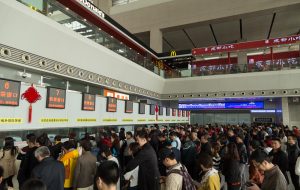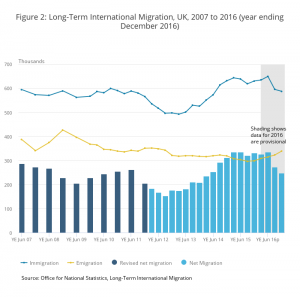
For most of us, it’s a great boon to live in a world in which travel between even distant parts is relatively cheap and takes hours rather than days, weeks or months. We can visit, explore and learn about places and people we never could have done only 40 years ago. More than that, if things are difficult for us at home this gives us the option to try our fortune elsewhere where resources, attitudes and the style of governance may suit us better.
Is there are approaches which are systematically superior to others then it is entirely to be expected that people finding themselves where these are sub-optimal will, if they are courageous and determined enough, seek to move to those where things are better. In Western Europe and North America we regard ourselves as fortunate in having considerable freedom to say, do and trade what we wish. We think of these as rights to which most global citizens aspire. If we are right about this we must expect the arrival of people from abroad at our ports and airports who would like to live and work in our countries.
Immigrants bring with them relative youth, labour power and the skills they have acquired in their home countries. What for the most part they do not bring is capital, and so their desire to come implies a relative excess of capital over labour in the form of infrastructure, productive land and technology. One way therefore to reduce immigration would be to make our country less attractive by lowering living standards and to reduce the amount of productive capital it contained. To some extent post-2010 austerity was successful in this regard, if only for a time, and Brexit looks likely to have a similar effect. (See chart below.)

If this programme of self-destruction is not sufficient to achieve net immigration levels to below the government’s target of 100,000 then further measures will be required. We must plan to stop people at our borders on a massive scale or entrust employers to vet their work force to ensure they avoid employing those we do not wish to work here, as well as inspecting small businesses to make sure they are not set up by those not permitted to do so. The effort this entails would be massive, although research suggests that the ending of free movement from the EU may itself be quite effective – on the other hand this is likely to have a further damaging effect on the UK economy – which in itself may play a further part in reducing the attractiveness of immigration.
Whichever way we cut it, targeting immigration is likely to involve a downward spiral of economic performance and falling real incomes, quite apart from any considerations of reduced diversity and reciprocal restrictions on our own freedom to travel and live abroad.